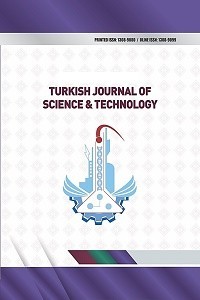Rasgele Yürüyüş, Rasgele Yürüyüş Değişken ve Lempel Ziv NIST test sonuçlarının verilmeme sebeplerinin incelenmesi
Rasgele sayı üreteçleri tarafından üretilen rasgele sayıların istatistiki olarak yeterliliklerini test etmek amacıyla Crypt-X, Diehard, FIPS 140 ve NIST gibi çeşitli test paketleri geliştirilmiştir. Özellikle büyük rasgele sayı dizilerinin test edilmesinde geçerli bir standart olarak kabul edilen NIST test paketi çoğunlukla kullanılmaktadır. Üretilen bit dizilerin NIST testinden başarılı olması için tüm testleri başarılı olarak geçmesi gerekir. Ancak yapılan birçok çalışmada on altı testten on üçünün sonucu verilmektedir. Sonucu verilmeyen, Rasgele Yürüyüş, Rasgele Yürüyüş Değişken ve Lempel Ziv Testleri ise yeteri miktarda bit dizisi elde edilememesi ve anlaşılamaması sebebiyle verilmemektedir. Bu amaçla gerçekleştirilen çalışmada bu üç test ayrıntılı olarak açıklanmış olup, doğrusal eşleniksel yöntem kullanılarak rasgele bit dizisi üretilmiştir. Üretilen rasgele bit dizisi tüm NIST testlerinden başarıyla geçmiştir
he study of the reasons for not giving the results of NIST Tests of Random Walk, Random Walk Variable and Lempel Ziv
In order to test the statistical proficiencies of the random numbers generated by the random number generators, various test packages such as Crypt-X, Diehard, FIPS 140 and NIST have been developed. Especially NIST package has been mostly used, considered as a valid standard in testing the big random number series. In order for the bit series to be successful in the NIST test, they have to pass all the tests successfully. However, in many studies performed, thirteen results out of sixteen studies were given in many studies performed. The tests of Random Walk, Random Walk Variable and Lempel Ziv Test, whose results were not given, were not announced due to the inadequacy of bit series and the ambiguity. In the study conducted for this reason, these three tests have been explained in detail and a random bit series has been developed by using the linear congruential method. The random bit series generated has been able to pass all the NIST tests successfully.
